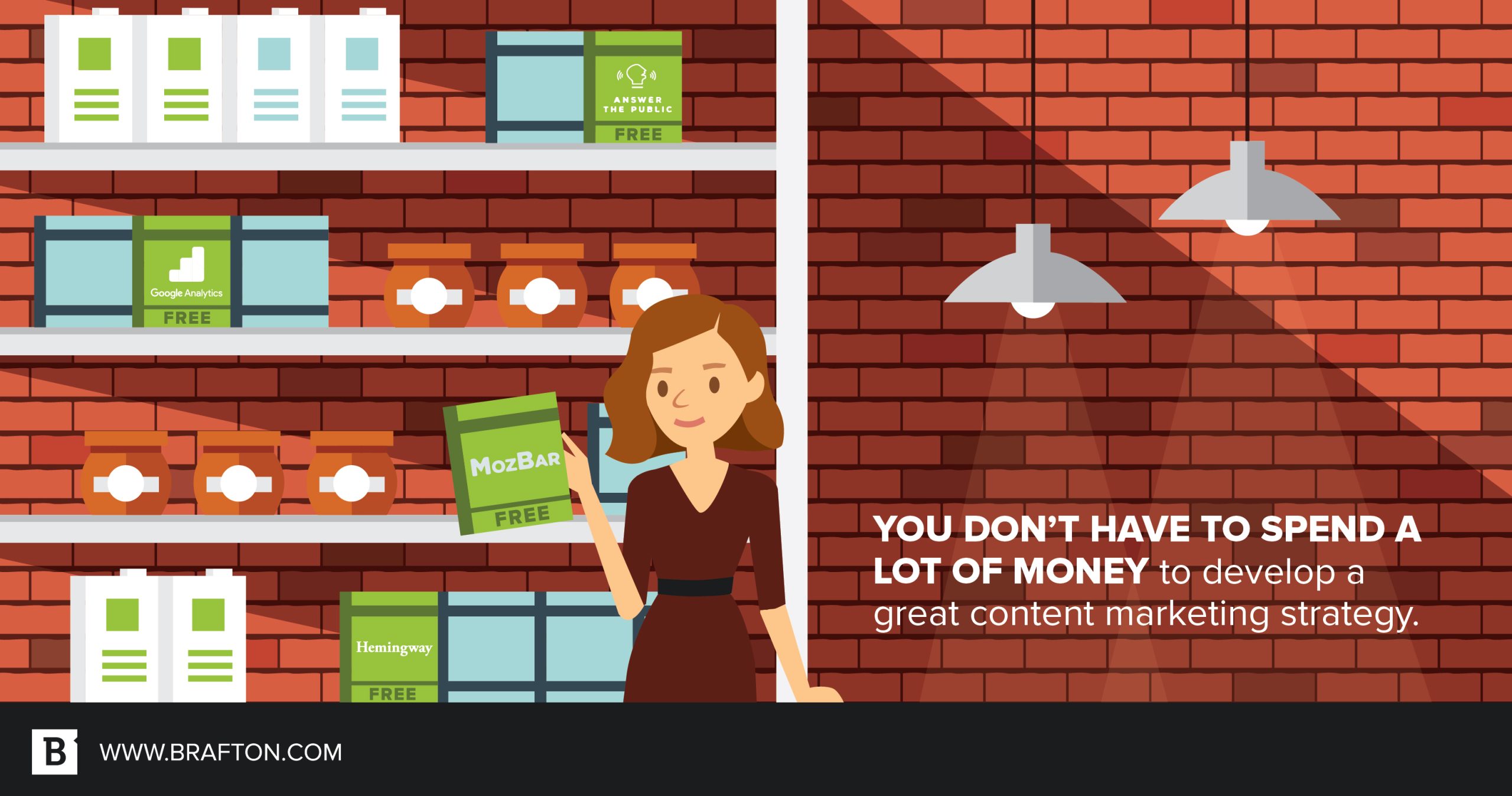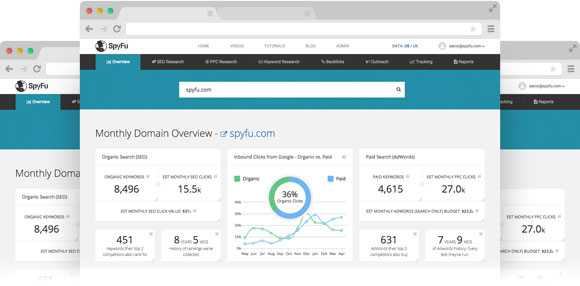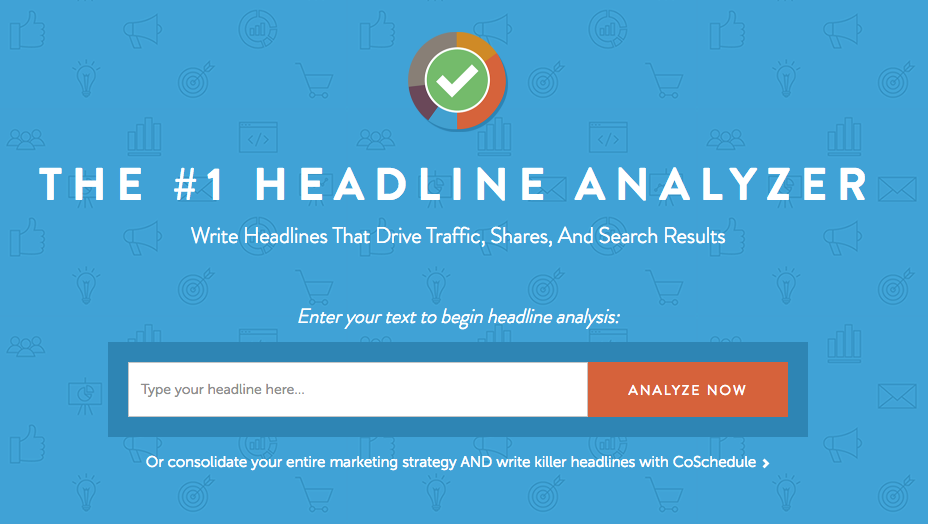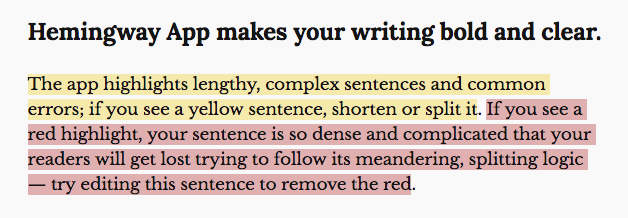You don’t have to spend a lot of money to develop a great content marketing strategy. In fact, many tools are available for my all-time favorite price: zero dollars.
That said, not all free marketing tools are created equal. To separate the best from the rest, I polled Brafton’s stellar team of strategists. These people spend their days with their noses buried in analytics platforms, so you know they have the skinny on what works.

Google Analytics
It’s not surprising that Google Analytics was a favorite of the entire team. Jeff Baker, Director of Digital Marketing Strategy, likened not using the platform to playing football with one arm while “hogtied, blindfolded, and being punched in the face.”
Senior Content Marketing Strategist Bill Cooper said simply that he lives in Analytics. Indeed, the insights to user behavior that Google provides are second to none. The platform tracks pretty much all user activity on your website, monitoring conversions, traffic sources and, visitor behavior. Analytics also points out pages that perform poorly, showing you exactly where to direct your optimization efforts.
SpyFu
While Google Analytics lets you analyze your visitors’ activity, Spyfu shows what your competitors are up to. You can download reports detailing their pay-per-click keyword strategy and monitor their ad spend, cluing you into how much you need to pay in order to be competitive. SpyFu also points out which keywords would work best for your marketing goals and recommends words you may not have considered.

via spyfu.com
MozBar
Want to see how effectively your content marketing strategy is working? Download MozBar, a free extension that displays your website’s domain and page authority right on your screen. In fact, MozBar shows you the authority of any webpage you are on, giving you further understanding of how your website stacks against your competitors’.
Headline Analyzer
Headlines set the tone for your content, drawing in readers or, if crafted poorly, turning them away. CoSchedule’s free Headline Analyzer tool grades your headline’s effectiveness by evaluating word choice, character and word length, keywords, headline type and sentiment. The tool also highlights which words will stick out most to readers as they skim your content and gives you a graphical preview of how the headline will appear in Google searches and email inboxes. Headline Analyzer is a great way to see how a slight change in wording can dramatically improve readability without going through the lengthy process of A/B testing.

via coschedule.com
Answer the Public
If you want to know what your audience wants to know, look no further than Answer the Public. This tool works sort of like a backwards Google. Simply type in a keyword, and Answer gives you a single page report of the related questions and queries people are searching for. Sometimes the results are simpler than you expect, but as Content Marketing Strategist Caroline Egan pointed out, even that information is helpful for devising your content marketing strategy.
“It helps me recognize that the most simple of questions need to be answered with stronger, more relevant content,” she stated.
Google Trends
To delve a bit deeper into your audience’s searches, head over to Google Trends. This tool shows you the ebb and flow of interest in a particular search term, charting its popularity over time. You can also see which regions are most interested in a particular subject.
Trends is great for understanding how a slight change in keyword terminology drastically influences your content’s effectiveness. Senior Director of Content Marketing Colin Campbell pointed to the platform as a great for comparing how many people view one term over another.
“We’ve used this tool to show clients they should change their service names to better match user search intent,” he explained.
Hemingway App
Even the best keyword strategy in the world won’t succeed if your content is poorly written. That’s where Hemingway App comes in. The tool enhances your content’s readability by comparing it to the writer Hemingway’s simple and direct writing style. It points out weak writing such as adverbs or the use of passive voice, provides helpful modification suggestions and highlights sentences that are overly complex.

via hemingwayapp.com
What to look for in your content marketing tools
Every strategist has favorite platforms that suit their particular working styles, which made me a bit curious. Aside from an intuitive interface, what does our team look for when considering which free marketing tools are worth their time?
Strategist Cassidy Donovan prioritizes reputability. “There are so many gray areas to marketing best practices, it’s good to know [what you get is] coming from the right source,” she said.
Meanwhile, Jeff Baker noted these tools need to provide strategists with actionable information.
“Most tools provide a lot of data visualization, which provides very little in the way of insights,” he elaborated. “What you want is information that translates to results.”
Senior Strategist Alexandra Featherston said that above all, she favors platforms that are easy to use.
“We don’t need to fuss with a bunch of extra work,” she noted.
Reputable, actionable, simple – all great guiding principles for your content marketing efforts.





